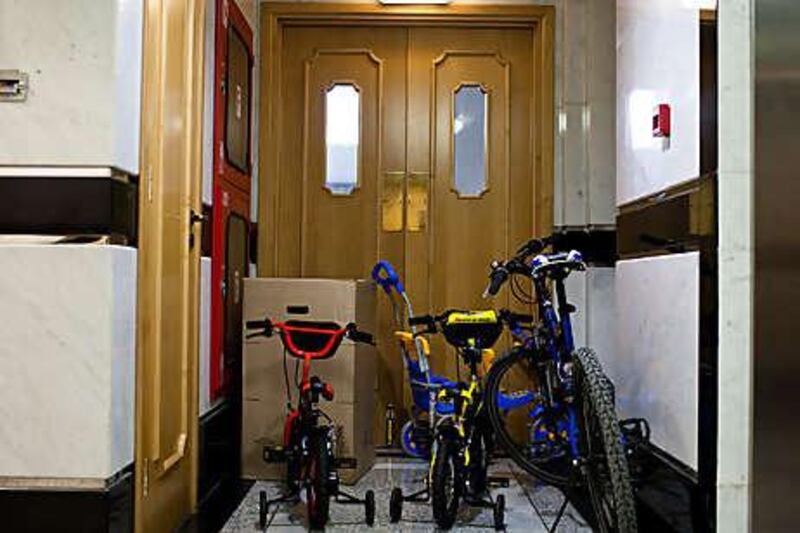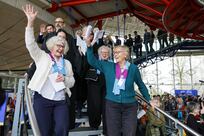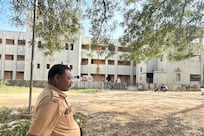ABU DHABI // The capital's biggest landlord is calling in a US consultant to check fire safety in all 2,500 of its buildings. The assessment, to start next month, will give Abu Dhabi Commercial Properties (ADCP), the country's largest property management company, its first comprehensive look at the level of fire preparedness in its buildings. Surveyors from the Chicago-based safety consultant Schirmer Engineering will look for deficiencies such as a lack of smoke detectors and self-sealing exits, and faulty sprinkler systems.
Each building's fire hazards will be graded from one to five, said Jim Bychowski, the managing director of Schirmer Middle East, with five being the safest. "If you look back over the past 20 years, there weren't any Abu Dhabi fire standards," he said. "In a lot of cases buildings didn't have active fire suppression systems like automatic sprinkler systems. That just wasn't common 20 years ago. "In some cases, there might be fire alarm systems but they may only be partial and could be expanded, like by putting in more smoke detectors."
Most buildings in Abu Dhabi are between five and 15 years old, according to Noel Roberts, the head of asset management with ADCP. More than 350,000 tenants live in the company's properties. "Fire and life safety is obviously something critical," Mr Roberts said. "You don't mess with people's lives. We can make sure the basics are there."
Recent fires in residential blocks in the Tourist Club area have underscored the need for adequate safety provisions. Dubai Civil Defence is also surveying around 60,000 buildings, with a stated aim of reducing the incidence of fires to zero. Mr Bychowski said ADCP's safety audit was an "elective process". "It wasn't a reactionary thing because of any specific fires," he said. The team has until next summer to complete the assessment, though Mr Bychowski hoped to finish by the end of this year. Mr Roberts said ADCP commissioned the "gap analysis", at an undisclosed fee, to define a new fire prevention strategy in the absence of a unified fire code for all developers. "Buildings were constructed to a hybrid of codes. Depending on the building's consultant or engineer, it followed this code or that code, but nothing consistent," he said. "A lot of the buildings might not be up to scratch with what you see internationally." The Department of Municipal Affairs hopes to address part of that problem soon, with the introduction in January of its new International Building Code. The code would standardise fire prevention measures in all new buildings. "The DMA will work with all concerned in the private and public sectors, including ADCP, to ensure all fire-related issues are addressed in the new codes," the department said yesterday. It added that the new Abu Dhabi fire code would require features such as automatic sprinklers, smoke detectors, standby and emergency power and smoke-proof exit enclosures. Regular inspections and maintenance also would be required. During recent checks in the Tourist Club and Al Wahda areas, The National found fire extinguishers that had expired months ago. Mr Roberts hoped the upcoming audit would complement Abu Dhabi's new fire code, as the company plans to fit existing buildings with features to bring them up to scratch. The new code applies mainly to new construction. Schirmer's assessments will take an eight-person team up to two hours per building, taking photographs and entering all the data into an iPad tablet computer. The information will be immediately uploaded and accessible to ADCP. "At any point, I'd be able to log in and see how the work is moving along," said Mr Roberts. "Is the fire alarm fully functional? Are there smoke alarms? As they're going through these buildings, it will all be beamed back to a central database." Once ADCP receives Schirmer's report, they must decide how to achieve the recommended upgrades within the company's budget, Mr Roberts said. "Better that you have the information at hand so we can develop a portfolio-wide strategy around it. Getting a full picture is the first approach," he said. The data will be shared with Civil Defence. mkwong@thenational.ae






